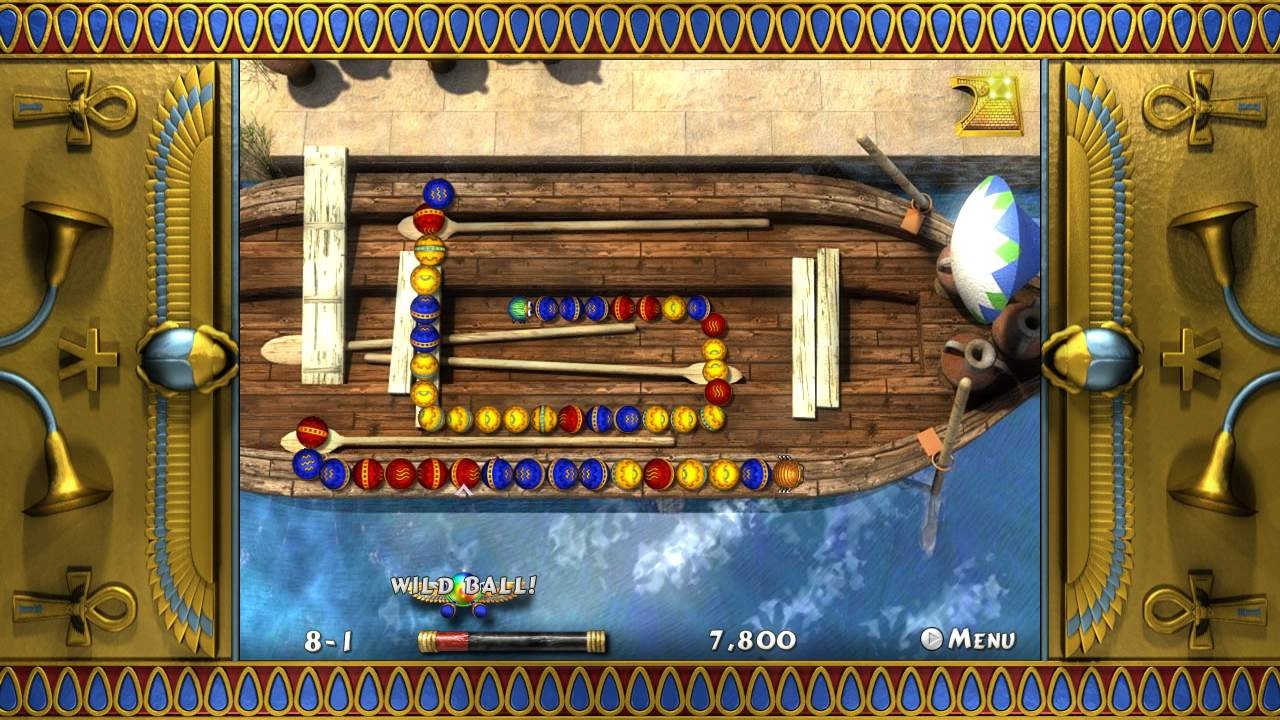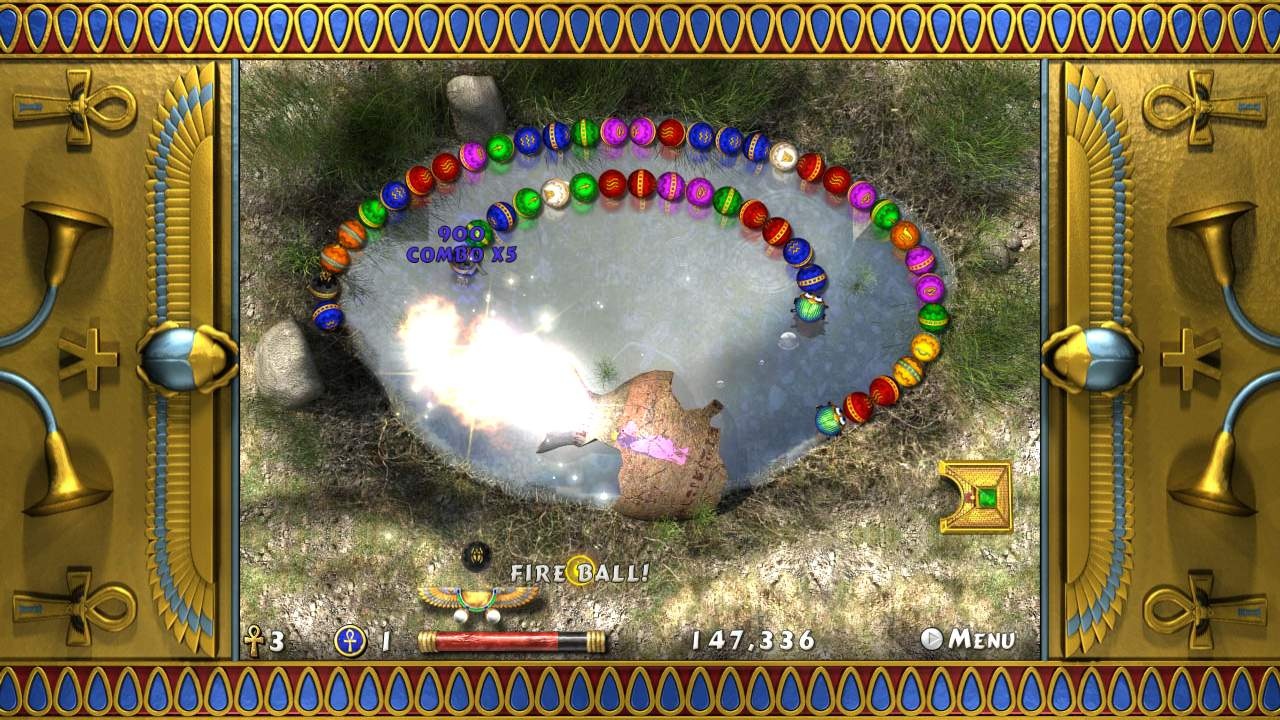Luxor 2 is the sequel to casual games developer MumboJumbo's Luxor. Luxor was a rip-off of the popular PopCap puzzler Zuma. Zuma was a rip-off of an obscure Japanese puzzle game called Puzz Loop. So, in essence, Luxor 2 is a sequel to a copy of a copy. If that sounds like too many layers of derivation for the game to be unique or particularly fun, you'd be exactly right. Luxor 2 feels every bit like the third-generation clone that it is, and its few twists on the concept that Puzz Loop created and that Zuma made popular aren't enough to make it worth the $10 it's running for on Xbox Live Arcade.

Stop us if you've heard this one before. Small colored balls come pouring out of an opening and wind their way through a loop or a wiggly line or some other pattern. You're given a cannon that launches similarly colored balls at the moving loops, and your goal is to break up the loops before they get to the very end of the stage by creating three or more combinations of same-colored balls. What, if anything, sets Luxor 2 apart from Zuma? Well, there's the fact that instead of a rotating ball cannon that sits in the center of a stage (that happens to be shaped like a giant stone frog), you get an Arkanoid-paddle-looking cannon that can only move from side to side at the bottom of the screen. There are also some power-ups you can earn as time goes on, like fireballs that clear out a big section of the balls, a dagger that takes out individual balls, and a lightning storm that takes out a random smattering of balls.
Trying to overexplain the game gives it more credit than it deserves. The concept is achingly simple, and no one should have a lick of trouble picking it up quickly. While that's a desirable quality in a casual puzzle game, mind-numbing tedium isn't. Luxor 2 isn't broken or particularly awful in any way, but the pacing and methodology of the gameplay are so mechanical and generally easy that it doesn't feel like you're getting better at the game so much as you're just going through the motions. Zuma also got sort of repetitive and dull after long stretches, but Luxor 2 gets that way much quicker. A big part of it is that the stage designs aren't all that clever or creative, so except for rare occasions when you get tripped up (and you won't stay that way for long), you'll figure out precisely what the movement pattern of the line of balls is going to be from nearly the moment the stage boots up. It doesn't help that there aren't many stages to choose from and that they start repeating pretty early on. A smaller though notable part of the problem is that Zuma Deluxe came out long before Luxor 2. We've all seen this formula done before, and done better.

The Egypt-instead-of-Amazon visual motif isn't enough to set the game apart, either. Instead of Mesoamerican temples and jungles, you get Egyptian temples and desert lands as a background, and none of it is enjoyable to look at. Yet despite the mediocrity of the graphics, the frame rate still chugs at times, which gives you even more of an advantage since it slows down the progression of the balls and lets you study your next move more carefully. There isn't much audio in the game. Sound effects are innocuous and dull, and music is a lot of synthesized orchestral tunes that repeat too often and eventually fade into white noise.
That Luxor 2 is an out-and-out rip-off of the puzzle concepts that Zuma popularized some time ago isn't immediately offensive--after all, puzzle games copy one another all the time. The problem is that Luxor 2 doesn't do anything to set itself apart. If you already own Zuma Deluxe on Live Arcade, there isn't a single aspect of Luxor 2 that makes it worth adding to your collection. If you haven't played Zuma, you should just go with that game, since it's the better of the two anyway.